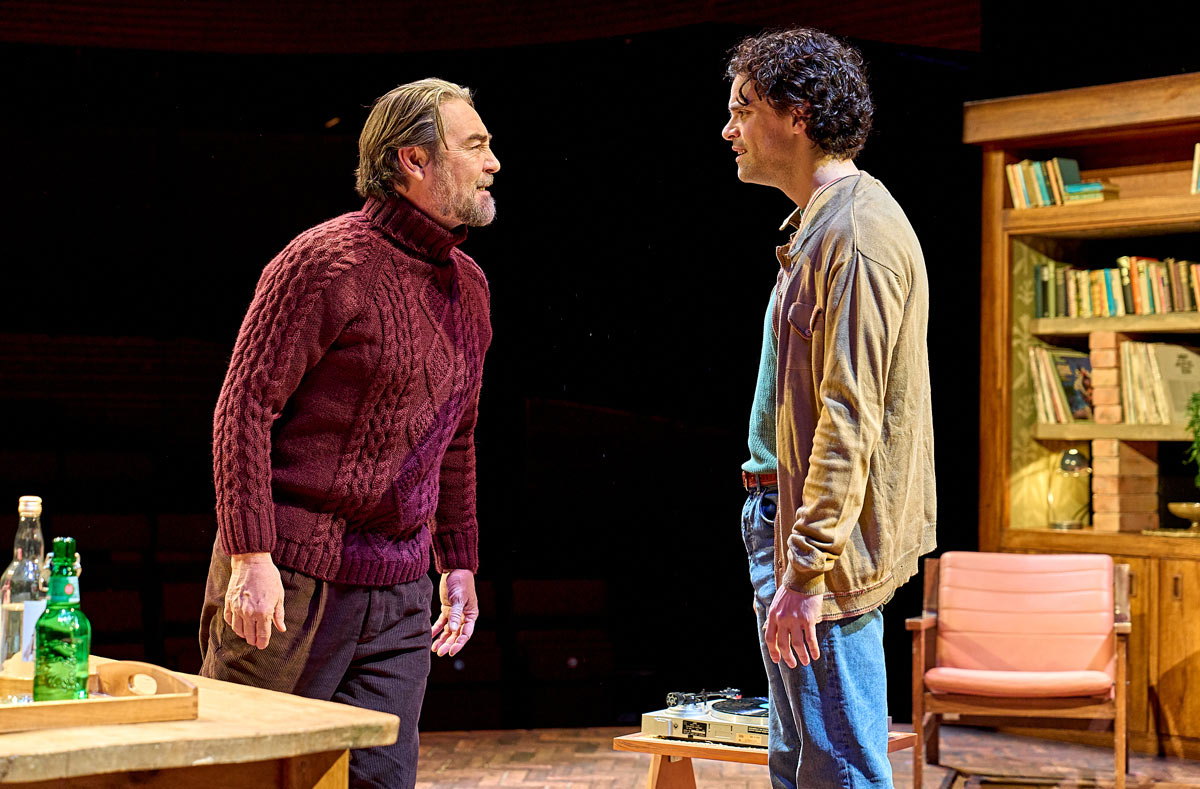Hard-line party members living in Cambridge, and others who control the more insidiously subversive effects of western music back home in Prague, consider themselves bastions of a system with a pure ideology, possessing of unimpeachable motives. As with all such systems however, they are inherently flawed due to their need for human beings to believe in them in the first place, and more significantly, for them to maintain the purity of the movement’s objectives in the longer term. As the writings and viewpoints of Vaclav Havel and Milan Kudera are played-out by proxy in front of the Hampstead Theatre audience, we get to witness the tragic progressive failure of communism during the course of the 20th century — with pumped Rolling Stones tracks interspersed between scenes.
Stoppard’s Czech roots and leanings are woven into the fabric of the play which splits into two halves and as such neatly provides a platform for two distinct eras of a family, their associated friends and comrades. Max (Nathaniel Parker) and Eleanor/Esme (mother and daughter both played by Nancy Carroll) philosophise Marxist theorem whilst teaching an understanding of Greek poetry in their Cambridge living room as others like Jan (Jacob Fortune-Lloyd) suffer hardship at the hands of the regime in Prague. The strong supporting cast turn-in a multitude of characters in director Nina Raine’s sensitive interpretation of the material, which is played to good effect on a set design by Anna Reid with audiences seated either side of the traverse stage.

 Nathaniel Parker & Jacob Fortune-Lloyd in Rock 'n' Roll. Credit Manuel Harlan
Nathaniel Parker & Jacob Fortune-Lloyd in Rock 'n' Roll. Credit Manuel Harlan

